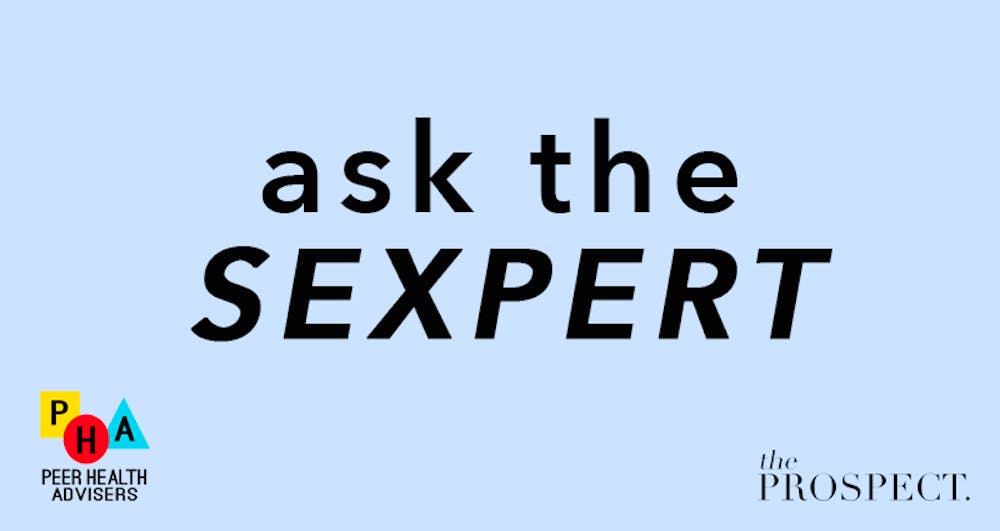Dear Sexpert,
Hi, I don't get much lubrication in my vagina when I’m having sex, is there any food or drink to help get wetter?
Best,
Dry and Dissatisfied
Dear Dry and Dissatisfied,
Thank you for reaching out to the Sexpert with your question! Many people with vaginas struggle with lubrication during sexual activities. First, a quick anatomy lesson: vaginal walls are hydrated by a thin layer of clear, odorless fluid. The hormone that regulates this fluid is estrogen. Estrogen influences lubrication of the vagina by influencing the pH of the vagina and vaginal secretions. Without adequate moisture, vaginal tissues become fragile and irritated, and may even tear. Beyond causing discomfort in everyday life, dryness can lead to painful sexual intercourse for many people with vaginas.
There are many reasons, ranging from physiological to emotional, why your vagina may be less lubricated when taking part in sexual activities.
For one, decreased moisture may be tied to a decline in estrogen levels as a result of menopause, breastfeeding, or taking oral contraceptives (i.e., birth control pill). In addition, a variety of oral medications, from antihistamines (allergy season, anyone?) and decongestants to antidepressants, have been shown to decrease vaginal secretions. The use of alcohol or other drugs (such as marijuana), in addition to impacting ability to consent, may also dehydrate you and increase vaginal dryness. Douching, or using a solution intended to “clean” the vagina can interfere with your natural pH and may increase dryness, as well. Emotional factors such as stress or distraction may also decrease natural lubrication by making it difficult to become aroused.
Since vaginal moisture is tied to arousal, you may find that lubrication improves when more time is spent focused on arousal before any penetration, also known as foreplay. This might involve stimulation of parts of the body other than the vagina, such as the breasts, neck, or other erogenous zones. Even simulation of your mind, such as exploring fantasies or watching porn, can increase arousal.
That being said, there are effective interventions for people with vaginas struggling with painful sex as a result of vaginal dryness. You may consider buying over-the-counter lubricants to provide additional lubrication. However, make sure you purchase water-based or silicone-based lube (not oil-based) if using a latex condom to prevent the material from breaking down. Do not use silicone-based lube on silicone toys, which can also cause material break-down.
When it doubt, water-based lube works safely with most materials. It does, however, tend to dry up quicker when exposed to air, so make sure to have plenty on hand and add more as needed! In addition to over-the-counter lubricants, some healthcare providers might recommend taking supplemental estrogen to provide a more permanent solution to vaginal dryness. A variety of estrogen products are available by prescription: you may be prescribed a vaginal estrogen ring, a vaginal estrogen tablet, or a vaginal estrogen cream. Consult with your provider if you find the other, non-prescription remedies insufficient.

In addition to over-the-counter lube or prescribed medication, some studies have found that certain food or drink has the ability to enhance vaginal lubrication. Perhaps the easiest dietary solution to promote lubrication would be to drink more water! Dehydration undoubtedly will lead to a dryer vagina. In addition to water, other food and drink have been shown to enhance lubrication. For example, the phytoestrogens in unprocessed soy products have been shown to enhance vaginal moisture. In addition to soy, avocados, apples and flaxseeds have been shown to prevent dryness.
If vaginal dryness persists, you may want to make an appointment with a University Health Services’ clinician at McCosh Health Center by phone (609-258-3141) or online at MyUHS. In some cases, a discussion of your health history and a physical examination may be useful in determining the cause of, and most effective methods to treat, vaginal dryness.
Sources:
https://www.bedsider.org/features/591-foods-that-make-your-vagina-happy-and-healthy-yes-really
https://health.clevelandclinic.org/best-fixes-vaginal-dryness-plus-natural-options/
The Sexpert is a biweekly column done in collaboration between the Prospect and the Peer Health Advisers (PHA program). For more information, you can visit the Sexpert’s website. If you are interested in submitting a question, you can email sexpert@princeton.edu.









